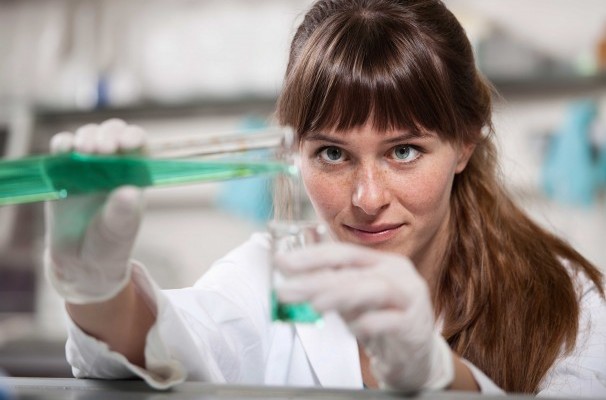05-01-2015
Mini-system being developed by Biorizon partners
The Biorizon OP Zuid Project is developing a working mini pilot system to produce furans from sugars. The aim of the Flemish partner VITO, companies on the Green Chemistry Campus and TNO is to make commercial production feasible for industrial partners by 2025. Developing a pilot system puts the researchers on the right track.
The Biorizon OP Zuid Project is developing a working mini pilot system
Aromatics are very important raw materials for the chemical industry. But that has its flip side. Using them makes for high dependence on petroleum, and they moreover contribute to the CO2 problem. The partners are therefore focusing with Biorizon on obtaining aromatics from plant material. Various methods are described in the literature, but so far large-scale continuous production that would be commercially viable has not been possible.
Continuous chemistry
‘At Biorizon we’re working to achieve the ultimate aim, a commercially viable method of producing biobased aromatics by about 2025’, says TNO’s Joop Groen. ‘We started in November 2013. We selected a number of production routes based on the literature and patent analyses, and using them we succeeded in converting sugars into furans and then into aromatics on a laboratory scale. Initially we produced a few milligrams in a graduated flask. With the knowledge gained in the process we’re now building a mini pilot system that operates continuously. That will enable us to produce 1 to 10 litres an hour.’
Open innovation
Biorizon aims to be one of the top five biobased aromatics research programmes in the world within five years. Groen continues: ‘What we’ve achieved in this project is fairly unique in the world, mainly due to the principle of Open Innovation. Meanwhile at Biorizon we’ve also pooled forces with Avantium and WUR/FBR, both reputed players in the field. I can’t give any details at present, but we’re focusing particularly on the aromatics most in demand in the industry, as it’s the industrial participants who determine to a large extent what we do and how we set priorities. Many of these are functionalized aromatics: for example phenols or aromatic acids that are still being made in existing compounds by the petrochemical industry, such as hydroxybenzoic acid, a raw material for high-grade polymers.’
Ground-breaking work
'We’re emitting too much CO2 and using up the earth’s resources at a rapid rate, and we’re dependent on the regions that supply us with oil. Given the strategic goal of greening the chemical industry we’ve decided to pool forces with producers, knowledge centres, government bodies and other players in the area of biobased technology. This tremendous challenge is very important for the future. We’re helping to solve the problems with ground-breaking work, and that makes it very exciting to be involved. We’re now building a mini pilot system. I’m looking forward to jointly discovering more commercial opportunities for the industry.’
Source: TNO

